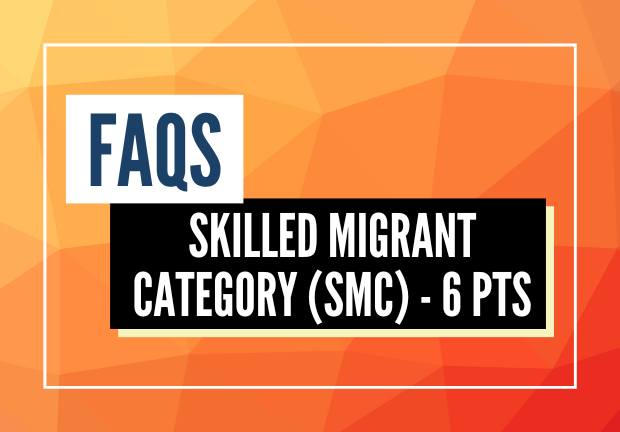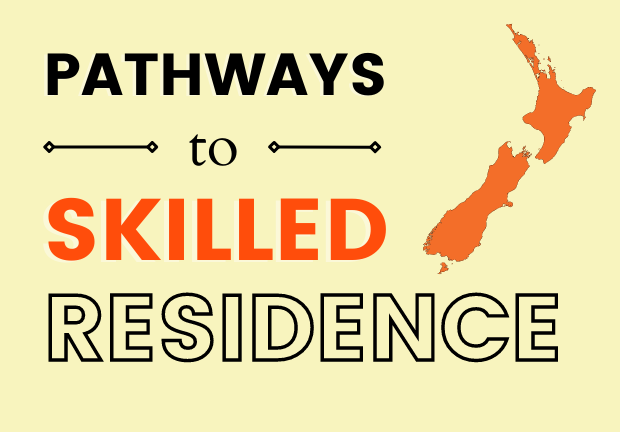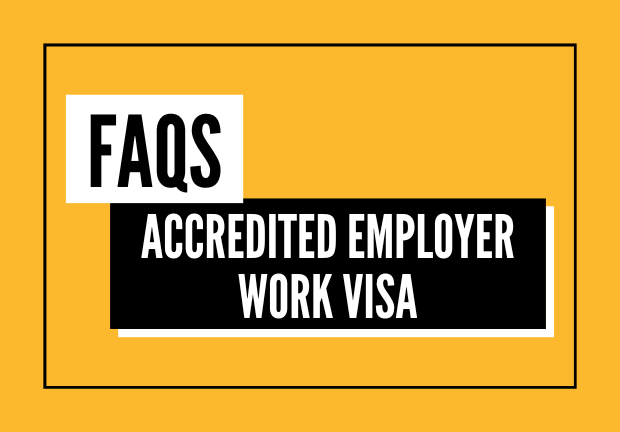6 points Skilled Migrant Category - Advanced Level FAQs
01 April 2025In 2024, nearly 3,000 Skilled Migrant Category (SMC) Resident Visa applications were approved. The SMC Resident Visa has become one of the key residence pathways for skilled professionals in New Zealand. While many are now familiar with the system, questions still arise around eligibility, claiming points, job requirements, and how different work experiences are assessed.
To support both migrants and employers, Immigration New Zealand (INZ)—via the New Zealand Association for Migration and Investment Inc. (NZAMI)—released clear guidance on commonly asked questions. Below, we’ve summarised these FAQs to help you navigate the SMC process with greater clarity and confidence.
Does the applicant need to work for an accredited employer to be eligible?
To qualify for a residence visa under the Skilled Migrant Category, the applicant's current job or job offer must be from an accredited employer. The accreditation should be in place when the applicant applies for residence or before a decision is reached. It's not mandatory for the skilled work experience gained in New Zealand to be with an accredited employer or while on an Accredited Employer Work Visa.
Can points be claimed for overseas work experience?
No. However, it can be recognised indirectly where a professional body has assessed it as part of an occupational registration.
Why isn’t overseas work experience being recognised?
The focus on skilled work in New Zealand means migrants can demonstrate a record of employment that Immigration New Zealand can verify. Verifying overseas work experience is complex, time-consuming, and often impossible.
How will the Expression of Interest (EOI) process work?
The expression of interest (EOI) for the SMC will be one step in the main application form and an automated process for applicants.
Applicants will answer a series of eligibility questions to make sure that they are eligible to apply for the SMC (which will prevent them from paying the SMC application fee unnecessarily). This will be an automated check, and there will be no separate fee for this step.
Eligible applicants who confirm they meet the base eligibility requirements of the SMC will then receive an automated invitation to apply (ITA), allowing them to immediately move on and complete the full SMC application and pay the associated application fee.
Have adjustments been made to accommodate the trades following consultation?
Following consultation on the original Skilled Migrant Category proposals, the training needed to qualify under the registration skill proxy was shortened from three years to two years for specific programs. This change opens up the opportunity for more skilled workers, like Line Mechanics, Drainlayers, External Plasterers, and Cable Jointers, to apply for residence. You can find the complete list in the SMC amendment circular on the INZ website.
In order to claim skilled work experience in NZ, does the AEWV holder have to meet the median wage threshold each time it increases over the period claimed?
Applicants don't need a consistent salary increase matching the median wage threshold, but they must show they met the threshold at the start of their skilled work period and when applying.
Can periods of full-time skilled work experience on a student visa (student holidays for example) be counted towards the overall NZ skilled work experience required under the SMC?
Yes, it can count as long as the person has the authority to undertake full time employment (and is meeting all the other requirements).
Can the applicant be self-employed and accrue skilled work experience points?
Applicants must have permanent employment, a fixed-term job lasting at least 12 months, or a contract for services as stated in their employment agreement. Note that those on a contract for services are technically self-employed, but they must be hired by another party to provide a service. This means they can't just be working for their own business.
With the introduction of the interim visa for SMC applicants, will there be a process the visa holders can go through to potentially amend the conditions?
No, you cannot amend the conditions of an SMC Interim Visa.
The SMC Interim Visa is automatically granted to eligible applicants and is intended to maintain lawful status in New Zealand while their Skilled Migrant Category application is processed. The visa conditions are fixed and cannot be changed, extended, or transferred to another visa. If your circumstances change, you may need to explore other visa options.
On an SMC interim, can people travel out of NZ and come back multiple times or just once? What will the visa conditions be?
Yes, people can travel out of NZ and come back multiple times. The visa will have multiple entry travel conditions.
Is there anything to prevent an employer raising the wages of a worker to meet the 1.5x median wage and then reducing wages down after residency has been approved?
No. There will be no such requirements on an SMC resident visa. Risks can be managed adequately through the assessment of the visa application.





